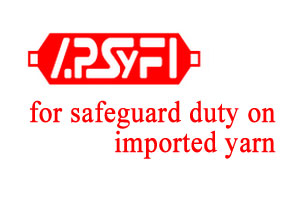
Indonesian yarn markers want safeguard duty on yarn imports
YarnsandFibers News Bureau 2015-06-23 17:38:00 – New DelhiYarn producers in Indonesia have urged the government to impose a temporary safeguard duty on imported yarn, which they claim is severely damaging the local producers. Local yarns, especially made of polyester, were unable to compete with the cheaper imported yarns due to their high cost of production.
Redma G Wirawasta, secretary-general The Asosiasi Produsen Synthetic Fiber Indonesia (APSyFI) stated on 22 June that many overseas yarn producers, facing weak global demand, dumped their goods on the Indonesian market and sell them at prices lower that local produce. Redma added that with the temporary safeguard duty, local downstream textile companies would use locally made yarn products.
He said, “We have seen a rising demand for textile and garment products in recent years as our middle-class population has grown. But most of the garments use large amounts of imported yarns. We hope that the government helps the yarn producers until there is a stable supply and demand in the global market.â€
The association had formally filed its request for temporary safeguard duties to Coordinating Economic Minister Sofyan Djalil, who had asked the Indonesian Trade Safeguard Committee (KPPI) to provide assistance regarding the plan. “We have talked to downstream companies and they understand our plan. However, we expect the government to bridge both of us, because it is they who will protect the local textile industry at the upstream to the downstream end,†Redma stated.
Rising operating costs and huge losses have forced many local industries, including textiles, to lay off thousands of their workers.
The association predicted that the local textile industry’s total consumption of polyester would surge to around 650,000 tons this year, up from 620,000 tons last year. Last year, imports of polyester had touched 135,000 tons, a significant increase from 72,000 tons in 2010. Polyester contributed the largest portion, 1.76 million tons or 39 percent, to local textile fiber consumption last year.
In 2014, local yarn makers had demanded anti-dumping duties. Although the measure was imposed it was insufficient to reduce imported products. The Industry Ministry’s director general of manufacture-based industry Harjanto acknowledged that the previous anti-dumping import duty was ineffective, so the ministry would control supply and demand in the local yarn market.
Market Intelligence
Ask for free sample Report

experience
Customer Base
dedicated team
Countries Served Worldwide









